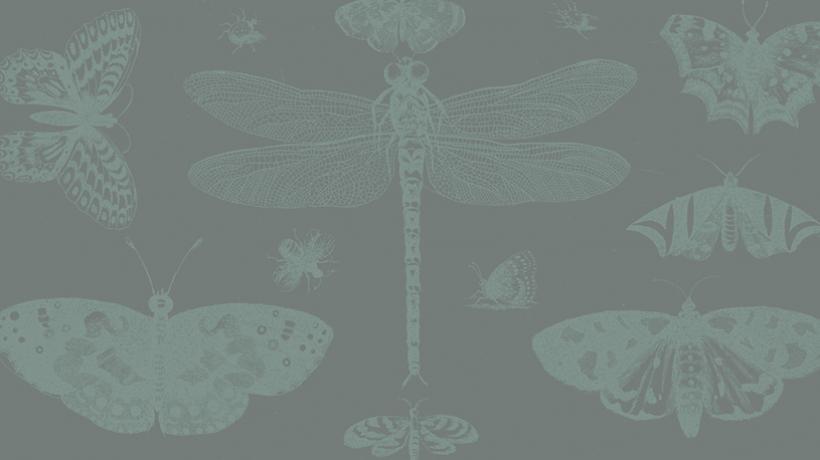Past Events by Year
December 2019
- 11:00 to 12:00
- Early Career Seminar
Calendrical Reform and Functionalism: Engagement of Mathematical Astronomers in Executive Practices in the Early Islamic Period
Organizer(s)AddressMPIWG, Boltzmannstraße 22, 14195 Berlin, Germany
RoomRoom 265- 12:00 to 13:00
- Digital Humanities Workshop
Digital Humanities in Action: Sociotechnical Challenges of Institutionalizing DH and of Collaborative Big Data History
- Mats Fridlund
AddressMPIWG, Boltzmannstraße 22, 14195 Berlin, Germany
RoomRoom 215- Conference
Geoanthropology. Comprehending the Human-Earth System
- Dept. I
- Several Speakers
- Julia Pongratz
- Friederike Otto
- Vasilis Dakos
- Ingrid van de Leemput
- Axel Kleidon
- Sabine Höhler
- Manfred Laubichler
- Franz Mauelshagen
- Dominic Boyer
- Felix Creutzig
- Laurence L. Delina
- Marina Alberti
- Johan Rockström
- Klaus Töpfer
- Susan Trumbore
- Sander van der Leeuw
- Geoffrey West
- Simon A. Levin
- Ulrich Pöschl
- Elena Rovenskaya
- Helga Weisz
- Jan Zalasiewicz
Organizer(s)AddressHarnack-Haus, Ihnestraße 16–20, 14195 Berlin, Germany
RoomLise-Meitner-Saal- 15:15 to 16:45
- Colloquium
Sounding Transatlantic Relations: The Making of Concert Pitch Between Europe and the United States (1863–1935)
Organizer(s)- 14:00 to 15:30
- Colloquium
A New Theory of Soul-Tuning?
Organizer(s)AddressMPIWG, Harnackstraße 5, 14195 Berlin, Germany
RoomVilla, Room V005/Seminar Room- 11:00 to 12:30
- Reading Group
Troubling Epistemics and Postcolonialism
AddressMPIWG, Boltzmannstraße 22, 14195 Berlin, Germany
RoomRoom 265- 11:00 to 12:30
- Colloquium
Rosemarie Trockel’s Rorschach-Bilder
Organizer(s)AddressMPIWG, Harnackstraße 5, 14195 Berlin, Germany
RoomVilla, Room V005/Seminar Room- 16:00 to 18:00
- Cold War Seminar Series
Margaret Thatcher, the Cold War, and International Science in the 1980s
AddressMPIWG, Boltzmannstraße 22, 14195 Berlin, Germany
RoomMain Conference Room- 14:00 to 15:30
- Colloquium
Touched Nature: Building in, with, and against the Environment in Norway after 1960
- 12:00 to 13:30
- Digital Humanities Workshop
Digital Humanities Brown Bag Lunch
AddressMPIWG, Boltzmannstraße 22, 14195 Berlin, Germany
RoomRoom 215- Workshop
Animal Materialities: Compositions and Practices in the History of Science
Organizer(s)AddressMPIWG, Boltzmannstraße 22, 14195 Berlin, Germany
RoomMain Conference Room- 09:00 to 17:30
- Conference
Alexander von Humboldt: Circulation of State Knowledge in Europe and Latin America
Organizer(s)- Helge Wendt
- Jakob Vogel
- Barbara Göbel
AddressMPIWG, Boltzmannstraße 22, 14195 Berlin, Germany
RoomRoom 219- 14:00 to 15:30
- Colloquium
Epistemology of the Zoological Closet: Curating (Dis)Order
- 11:30 to 18:00
- Workshop
Alchemy between Practices and Theories
- 14:00 to 16:00
- Seminar
Lessons from the Case of the Life Sciences: Thinking toward Philosophy of Science as Interdisciplinarity
- Max Planck Research Group (Final Theory Program)
- Charles Pence (Université catholique de Louvain, Belgium)
Organizer(s)AddressMPIWG, Harnackstraße 5, 14195 Berlin, Germany
RoomVilla, Room V005/Seminar Room
November 2019
- 18:15 to 19:45
- Colloquium
Nicola Vicentino's Archicembali and the Keyboarding of the Ars Perfecta
Organizer(s)- 15:00 to 17:00
- Seminar
Localizability and vacuum entanglement in (non-)relativistic QFT
- Max Planck Research Group (Final Theory Program)
- Maria Papageorgiou (University of Waterloo, Canada)
Organizer(s)AddressMPIWG, Harnackstraße 5, 14195 Berlin, Germany
RoomVilla, Room V005/Seminar Room- 11:00 to 12:00
- Early Career Seminar
A Physicist Road to Emergence: A Revisited Story of “More Is Different”
Organizer(s)AddressMPIWG, Boltzmannstraße 22, 14195 Berlin, Germany
RoomRoom 265- 12:00 to 13:30
- Digital Humanities Workshop
Networks and Network Analysis as Heuristic Tools in the Humanities
AddressMPIWG, Boltzmannstraße 22, 14195 Berlin, Germany
RoomRoom 215- 11:00 to 12:30
- Reading Group
Troubling Epistemics and Postcolonialism
AddressMPIWG, Boltzmannstraße 22, 14195 Berlin, Germany
RoomRoom 265

